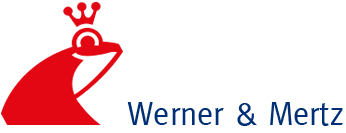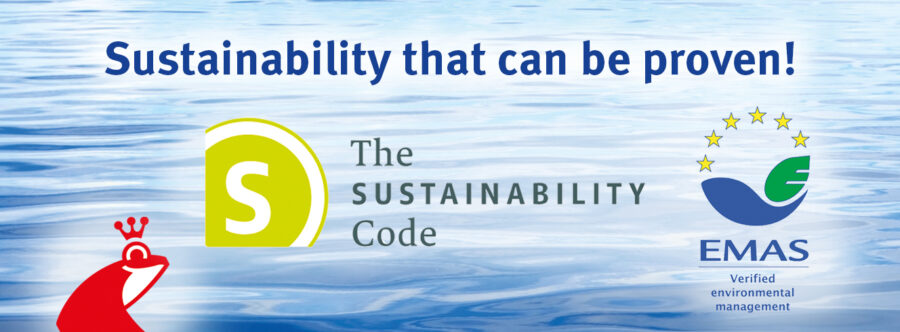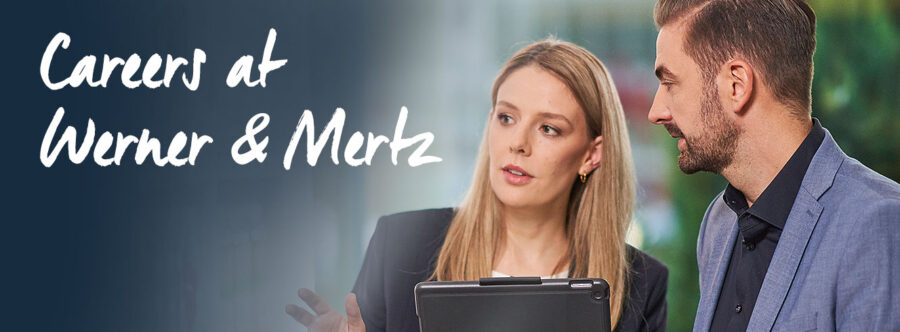The source matters for the climate!
In the campaign, everything revolves around the resource-conserving circular economy, mechanical recycling and, of course, the Frosch products and the Yellow Bag as the source of high-quality plastic packaging made of recyclate.
In amusing animated spots Werner & Mertz and Frosch show what a functioning circular economy means and how easily it can be made a part of consumers’ daily lives.
The dishwashing liquid bottle Aloée not only stands for powerful cleaning but also represents naturalness, kindness to skin and a living commitment to environmental protection. Her warm, open and can-do attitude makes Aloée a lovable original in the Frosch universe. In a chummy recycling give-and-take with Yellow Bag Jello, she shows that a sustainable way of life can be fun.
In the kitchen, Jello explains to Aloée that she can be reborn again and again. Mechanical recycling starts with her happy jump into the Yellow Bag. Then the packaging can be recycled in a high-quality, resource-conserving process in a recycling center (called the “Recyclatventure Park” 😉) and a new cycle can begin.
The dwarf stain removers of the Frosch brand know that Jello, the Yellow Bag, is a genuine recycling hero. So the schoolteacher doesn’t have to drill the dwarfs for long. The Yellow Bag puts the ideal source of used plastic right in front of our door. An empty PET bottle or an empty HDPE dwarf stain remover can be sorted by type, cleaned and then made into new high-quality packaging.
Our packaging has been made of 100% recyclate, since 2014, an increasing proportion of this has come from the yellow bag/yellow bin collection. With our world record of 1 billion PET bottles made from recycled material on June 23, 2025, we announced the switch our PET bottles to 100% recycled plastic from the yellow bag/yellow bin collection. Unfortunately, this resource is underutilized in Germany. It‘s high time for others to see the Yellow Bag not as packaging for waste, but rather what it truly is—the valuable source for high-quality packaging made from used plastic. The dwarf stain removers know that. More recycling adventures with the likable whirlwinds are in the films: The Source Matters for the Climate.
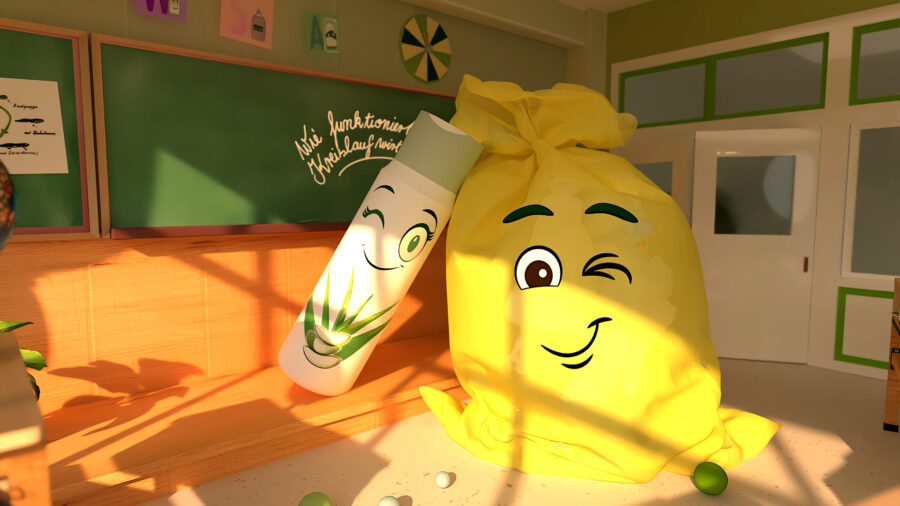
Jello, the Yellow Bag, is the central link in the mini stories. His green recycling heart beats for a clean environment. Always ready for a little fun, Jello is an icon of high-quality mechanical recycling.
The stain-removing dwarfs Flecki, Checky and Bäm are a lively trio with charm and cheeky humor. Together they go to the Frosch Recyclate School to learn the basics of the circular economy.
The shower gel bottle Recy is the teacher who tells the three dwarfs what a functioning circular economy means. Recy is grateful for Jello’s help and never tires of reminding her pupils that the Yellow Bag is the “entrance gate” to high-quality mechanical recycling.
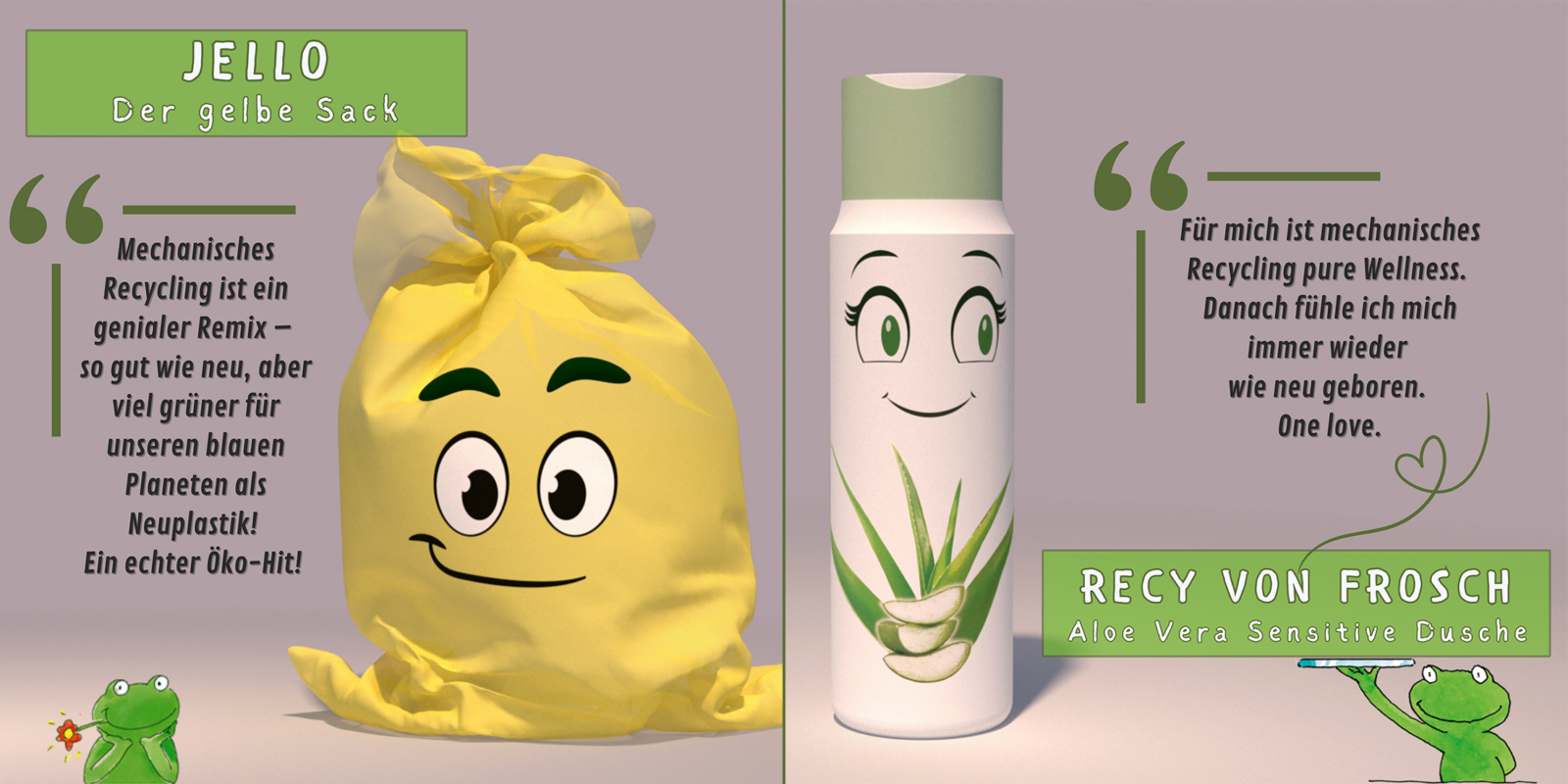
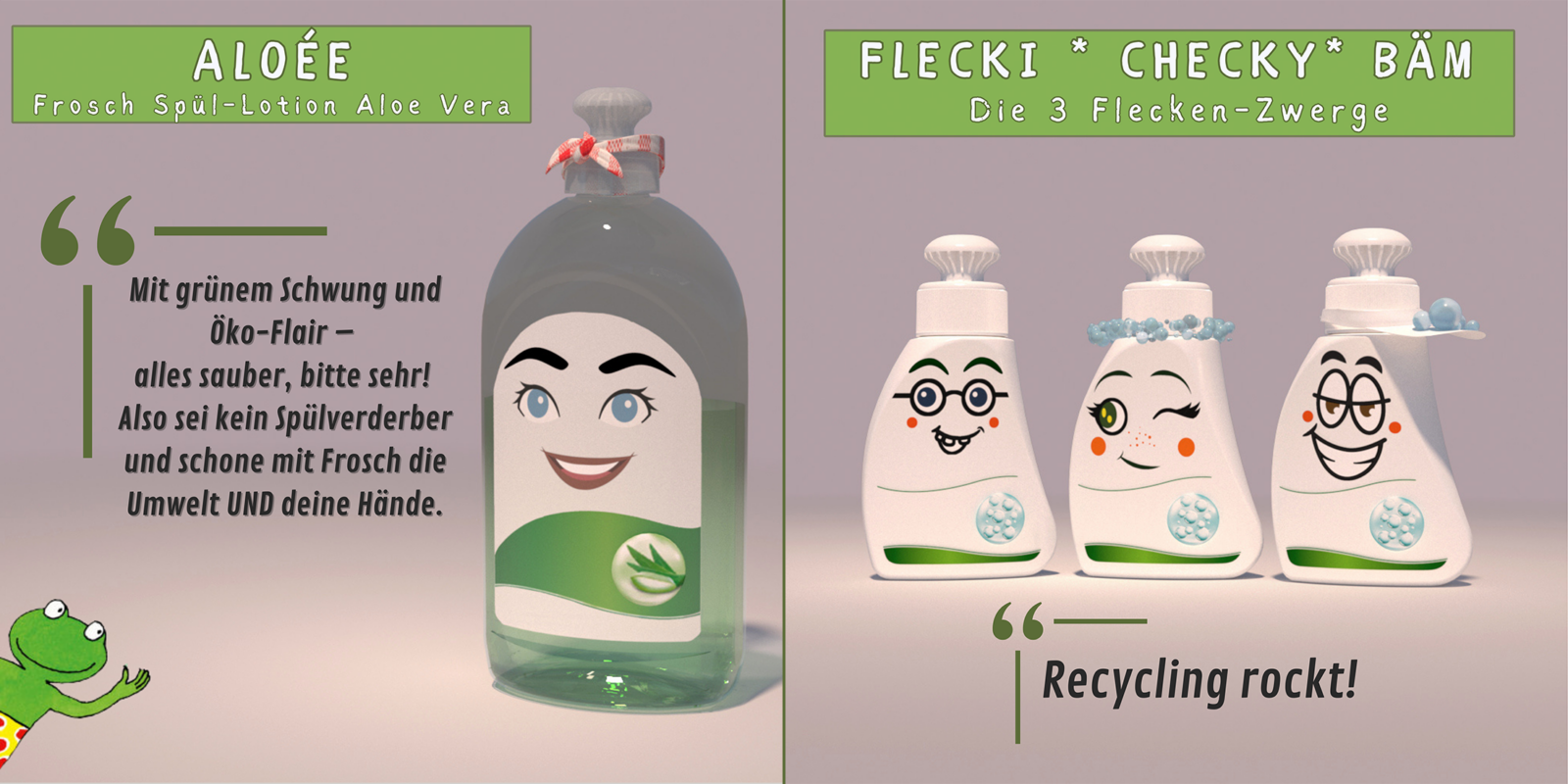
The dwarf stain removers Flecki, Checky and Bäm make a field trip to Recyclatventure Park with the Yellow Bag Jello and their teacher Recy. While they’re having fun at the park, they learn how mechanical recycling works. When three bottles go into recycling, three high-quality bottles come out. An empty bottle that lands in the Yellow Bag can be recycled in an energy and resource-consering process into valuable material for new packaging.
An invented language makes learning fun
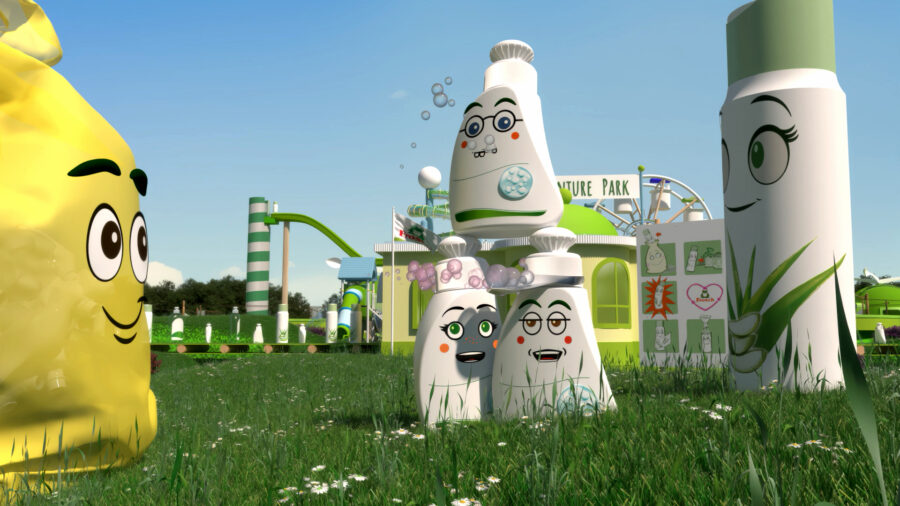
Three additional characters, namely Flecki, Checky and Bäm, make their grand entrance in the two spots (Dwarf Stain Removers in the Recyclate School) and (Dwarf Stain Removers in Recyclatventure Park). They make up a lively trio with charm and cheeky humor. Together they go to the Frosch Recyclate School to learn the basics of the circular economy. The film makers invented Fleckzwergisch, a special language just for the three characters. It contains invented words and terms, that sound a little bit like real languages. What sounds like childish gibberish at first helps to teach important keywords in a fun and funny way. Of course the other actors understand Fleckzwergish and translate it for viewers.
Mechanical Recycling 👍
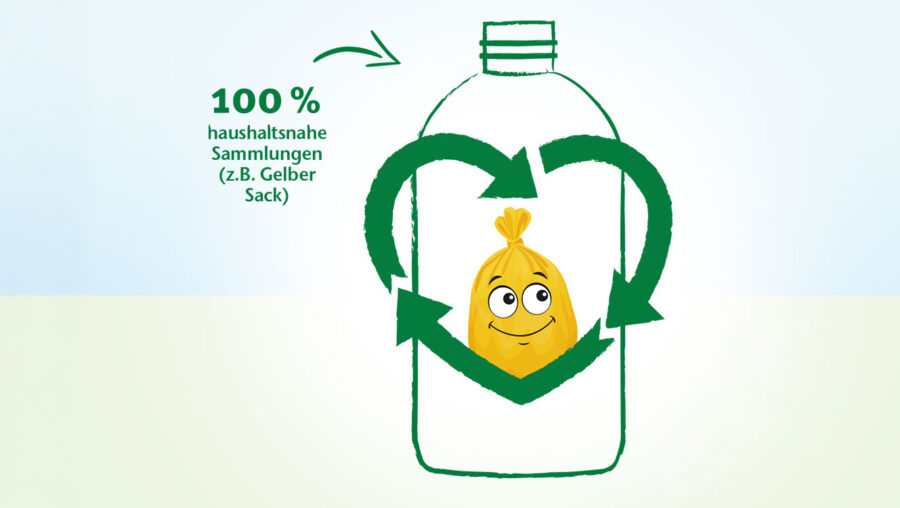
Through mechanical recycling of plastic packaging and the use of Yellow Bag material, we have been setting new standards for years. As early as 2014, the PET bottles for Frosch products were made completely of recycled material. At first 20 percent came from the Yellow Bag and the remaining 80 percent from European deposit bottle collections (Bottle to Bottle). In 2021 Werner & Mertz, in cooperation with ALPLA, raised the recycled plastic portion from the Yellow Bag to 50 percent. In 2023 the next step was reached with an increase to 75 percent. On 23 June 2025, we achieved a significant milestone: 1 billion PET bottles made from recycled material. On the occasion of this world record we announced for our PET bottles the switch to 100% recycled plastic from the yellow bag/yellow bin collection.
